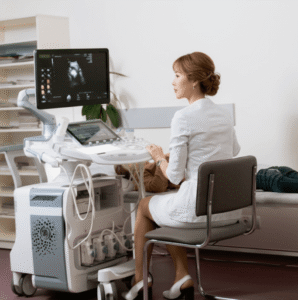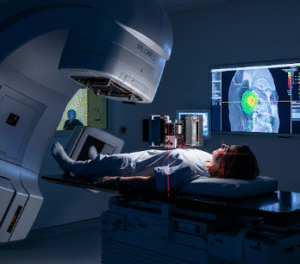South Korea has long been known as a global hub for technology, innovation, and digital transformation — and now it’s taking the same spirit into the healthcare industry. The country’s health-tech ecosystem is growing rapidly, supported by strong government initiatives, world-class infrastructure, and an entrepreneurial culture that blends medical expertise with cutting-edge technology. From AI-powered diagnostics to digital therapeutics and wearable devices, Korea’s health-tech startups are shaping the future of global healthcare innovation.
The Rise of Health-Tech in Korea
Healthcare innovation in Korea has accelerated in the past decade, driven by demographic and societal shifts. With an aging population, increasing demand for personalized healthcare, and a digitally literate society, Korea provides the perfect environment for health-tech entrepreneurship to thrive.
➡️ Key factors fueling growth:
• Aging society: By 2030, nearly one in four Koreans will be over 65, driving demand for advanced medical technologies and elder care solutions.
• Universal health coverage: Korea’s National Health Insurance System provides a rich data environment for innovation.
• High digital adoption: Over 95% internet penetration and early adoption of AI, 5G, and IoT technologies.
• Government investment: Supportive policies and funding programs for digital health startups.
✅ Result: These conditions have made Korea one of the most dynamic and supportive markets for healthcare innovation in Asia — and increasingly, the world.
Government Support for Health-Tech Entrepreneurs
The Korean government recognizes health-tech as a strategic industry for future economic growth and global competitiveness. Through a combination of funding, regulatory reform, and infrastructure development, it has created a fertile environment for entrepreneurs.
➡️ Major government initiatives:
• K-Health Innovation Strategy: Promotes integration of AI, big data, and digital healthcare into national medical systems.
• Bio-Health Industry Initiative (by the Ministry of Health and Welfare): Aims to make Korea one of the world’s top five bio-health powerhouses by 2030.
• Regulatory sandboxes: Allow startups to test new technologies in real-world healthcare settings with temporary regulatory flexibility.
• K-Digital Healthcare Clusters: Regional innovation zones like Osong, Daegu, and Pangyo dedicated to fostering med-tech startups and research collaboration.
• Public-private partnerships: Government, hospitals, and tech firms collaborate on AI diagnostics, telemedicine pilots, and wearable research.
💡 Impact: These programs have lowered entry barriers for entrepreneurs, enabling them to experiment, test, and scale faster than ever before.
Startup Hubs and Health-Tech Innovation Centers
Across Korea, health-tech clusters and startup incubators are emerging as the backbone of the innovation ecosystem. These centers provide entrepreneurs with mentorship, investment, and access to medical institutions for testing and development.
➡️ Notable innovation hubs:
• Pangyo Techno Valley: Often called “Korea’s Silicon Valley,” home to startups specializing in AI diagnostics, blockchain healthcare, and digital therapeutics.
• Osong Bio Valley: Focused on biopharma, bioinformatics, and clinical trials.
• Daegu Smart Wellness Valley: Dedicated to wearable technology, IoT health monitoring, and rehabilitation robotics.
• Seoul Bio Hub: Supported by the Seoul Metropolitan Government, connecting startups with research institutions and hospitals.
🏥 Example: The K-Startup Center for Digital Health in Seoul offers health-tech founders lab facilities, business coaching, and international networking programs.
The Role of Hospitals and Research Institutions
Korean hospitals are not just healthcare providers — they’re active partners in innovation. Major medical centers collaborate with startups and universities to develop, test, and deploy digital health solutions.
➡️ Hospital-driven initiatives:
• Asan Medical Center: Operates an AI Innovation Lab to support health-tech R&D.
• Seoul National University Hospital (SNUH): Runs data-sharing programs that help startups train AI models on anonymized medical data.
• Samsung Medical Center: Partners with tech companies on smart hospital solutions and predictive analytics.
• Yonsei Severance Hospital: Tests AI-assisted imaging and robotic rehabilitation tools.
✅ Outcome: Startups benefit from real-world validation and clinical partnerships, while hospitals gain access to the latest innovations.
Focus Areas for Korean Health-Tech Startups
Korea’s health-tech ecosystem spans multiple domains, reflecting the country’s strength in technology and life sciences.
➡️ Emerging focus areas:
• AI diagnostics: Algorithms analyzing medical images for early detection of cancer, cardiovascular, and neurological diseases.
• Digital therapeutics (DTx): Software-based treatments for mental health, diabetes, and insomnia.
• Wearables and remote monitoring: Smartwatches, biosensors, and IoT platforms for continuous health tracking.
• Telemedicine and virtual clinics: Providing digital consultations and remote patient management.
• Genomic and precision medicine: Leveraging big data and AI to personalize treatment plans.
• Blockchain healthcare systems: Ensuring data integrity and secure health information exchange.
💡 Innovation example: Korean startup Lunit developed AI imaging software that helps detect lung cancer with world-class accuracy, now used in hospitals worldwide.
Investment and Funding Landscape
Health-tech has become one of the most attractive investment sectors in Korea. Both domestic and international investors are fueling growth through venture capital, government grants, and corporate partnerships.
➡️ Key investment drivers:
• Strong returns from AI and biotech integration.
• Increasing global demand for digital health exports.
• Government-backed funding via Korea Development Bank (KDB) and Korea Investment Partners.
• Corporate venture arms from Samsung, LG, and SK investing in medical AI and wearable startups.
📊 Data snapshot: According to Korea Health Industry Development Institute (KHIDI), health-tech investment grew by over 50% between 2020 and 2024, reaching billions in annual funding.
Collaboration Between Startups and Tech Giants
Korean tech conglomerates are key players in the health-tech ecosystem, partnering with startups to develop and scale innovations quickly.
➡️ Examples of collaboration:
• Samsung: Expanding its health-monitoring wearables and medical imaging technologies in partnership with startups.
• Naver & Kakao Healthcare: Building AI-driven platforms for personalized wellness, telemedicine, and patient engagement.
• SK Telecom: Developing 5G-enabled telehealth networks and data platforms for hospitals.
• LG CNS: Investing in healthcare data security and blockchain integration.
⚙️ Impact: These partnerships provide startups with access to advanced technologies, distribution networks, and international markets.
Challenges Facing Health-Tech Entrepreneurs
Despite rapid progress, entrepreneurs still face challenges in scaling health-tech startups.
➡️ Common hurdles:
• Regulatory complexity: Health data privacy and medical device certification can slow time-to-market.
• Integration difficulties: Connecting startup solutions with hospital systems and EMRs remains a technical challenge.
• Limited access to medical data: Strict patient privacy laws, though necessary, limit open innovation.
• Talent shortage: Demand for AI engineers and medical data scientists exceeds supply.
✅ Positive outlook: Ongoing government reforms and cross-sector collaboration are gradually easing these barriers, making it easier for startups to innovate responsibly.
Korea’s Global Impact on Health-Tech
Korean startups are not only transforming local healthcare but also expanding globally. Many are exporting telemedicine systems, AI diagnostics, and health data platforms to Asia, Europe, and the Middle East.
➡️ Examples of global expansion:
• Lunit (AI diagnostics) – Partnered with GE Healthcare and deployed in over 40 countries.
• VUNO – Provides AI-based clinical decision support tools used in hospitals worldwide.
• LifeSemantics – Offers digital therapeutics and patient management systems across Asia.
• Dr. Now – Korea’s telemedicine startup expanding its online consultation model internationally.
🌍 Global reputation: Korea’s combination of medical excellence, digital expertise, and strong data security laws positions it as a trusted exporter of smart healthcare technologies.
The Future of Korea’s Health-Tech Ecosystem
Korea’s health-tech ecosystem is expected to evolve into a global innovation powerhouse. The next phase will focus on data-driven precision medicine, preventive care, and fully digital hospital systems.
➡️ Future trends to watch:
• AI-integrated national health platforms: Linking personal data, insurance, and medical services.
• Metaverse healthcare: Virtual hospital environments for training and consultation.
• Personalized digital twins: Virtual patient models for predicting treatment outcomes.
• Sustainable health-tech startups: Green innovations that reduce hospital carbon footprints.
🚀 Vision: A connected ecosystem where startups, hospitals, and policymakers work together to make healthcare smarter, more inclusive, and globally accessible.
Final Thoughts
Korea’s growing ecosystem for health-tech entrepreneurs represents the perfect blend of innovation, collaboration, and purpose. Through strong government backing, advanced technology, and a culture of creativity, the nation is not just keeping pace with global healthcare trends — it’s setting them.
From AI diagnostics to virtual clinics, Korean health-tech startups are reimagining healthcare as more efficient, personalized, and human-centered.
✨ In Korea, the future of health isn’t just about curing disease — it’s about creating smarter systems, empowered patients, and a world where technology truly heals.













